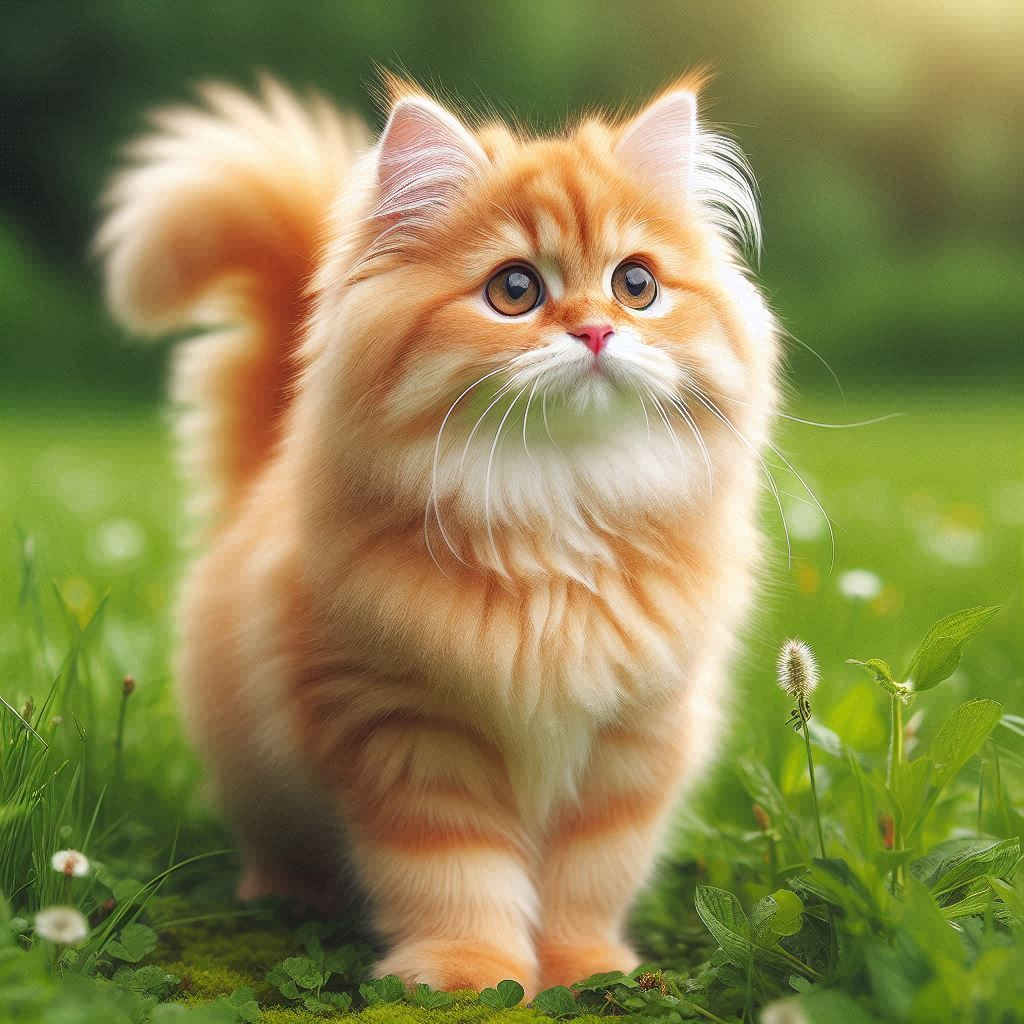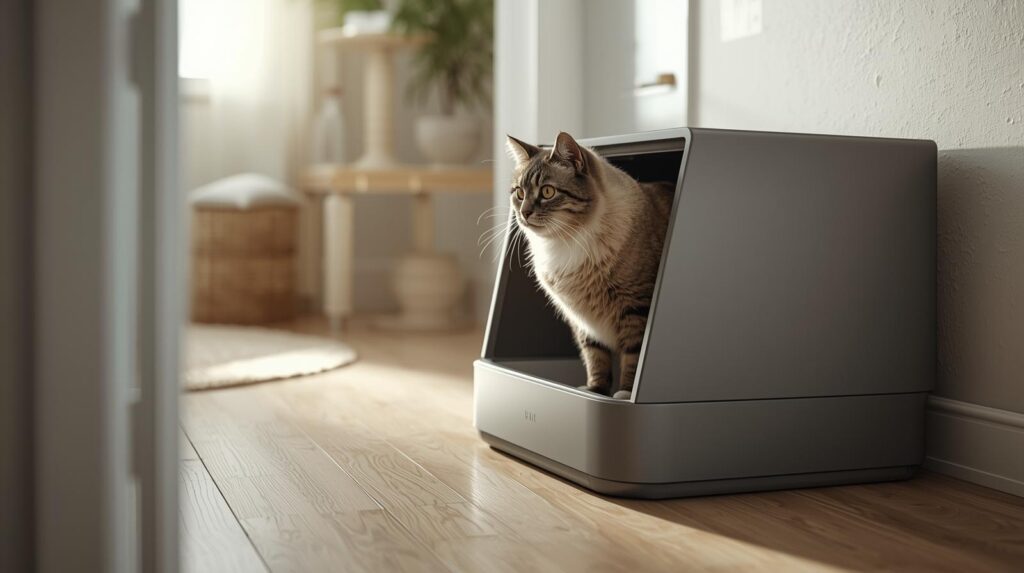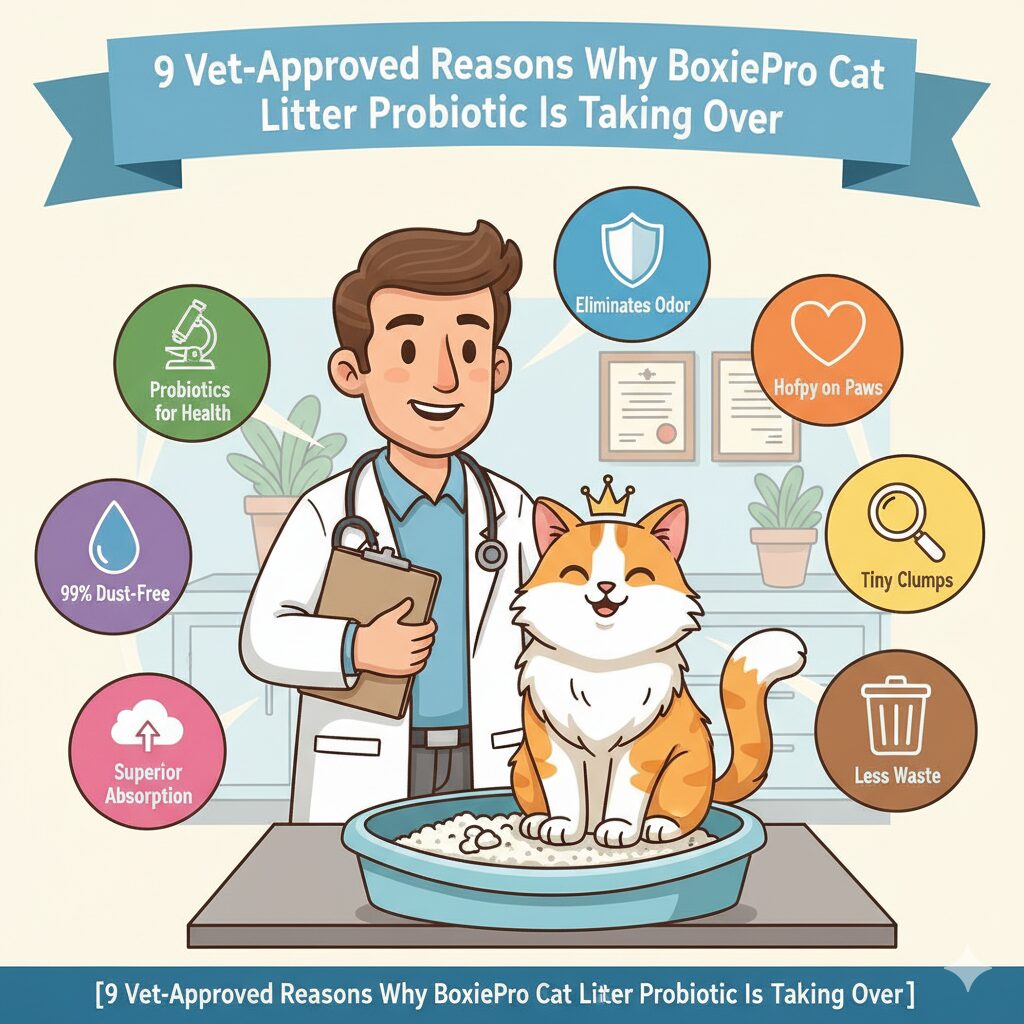Choosing the right litter for your small animals can be a daunting task, especially when there are so many products on the market that promise to be eco-friendly, odor-absorbing, and comfortable.
One option that is gaining popularity but often overlooked by many is grass seed litter. While traditional litters such as clay, wood pellets, or recycled paper might dominate the market, grass seed litter offers a unique alternative that has several benefits worth exploring.

In this blog post, I will provide an in-depth review of grass seed cat litter, its advantages, disadvantages, and factors to consider when making your purchase. Let’s dive into why grass seed litter might be the perfect option for your pet’s hygiene, health, and overall comfort.
What is Grass Seed Litter?
Grass seed litter is made from natural grass seeds, usually a type of renewable plant fiber, that is processed and formed into granules or pellets. These granules absorb moisture effectively and can be used for small pets like rabbits, hamsters, guinea pigs, ferrets, or even birds.
Its eco-friendliness, natural composition, and biodegradable properties are major selling points that set it apart from more commonly used litter.
check out the top 10 best cat litter of all time.
Benefits of Grass Seed Litter
- 100% Natural and Chemical-Free
Many commercial litters use chemical binders, fragrances, or additives, but grass seed litter is often free from chemicals, perfumes, and artificial additives. This makes it a healthier option, especially for animals with sensitive respiratory systems or allergies. Plus, it’s safer if ingested—an important consideration for pets that like to nibble on everything. - Superior Absorption
Grass seed litter is designed to be highly absorbent, locking in moisture and controlling odors naturally. Compared to traditional wood shavings or paper-based litters, grass seed litter tends to hold liquid better, keeping the environment drier for longer periods. This means less frequent cleaning and a more pleasant living environment for your pet. - Odor Control
One of the standout features of grass seed litter is its ability to neutralize odors effectively. The natural fibers trap the ammonia from urine, reducing the need for artificial fragrances, which can sometimes irritate pets. Your home stays fresher without overwhelming chemical smells. - Environmentally Friendly
Grass seed litter is biodegradable and compostable, making it an eco-conscious choice. If sustainability is important to you, then grass seed litter provides a fantastic alternative to clay-based or silica-based litters, which often end up in landfills. Composting the used litter adds nutrients to your garden as well! - Soft and Gentle on Paws
Grass seed litter is soft and gentle, which makes it ideal for small pets with sensitive paws or injuries. Unlike clay or crystal litters, which can be harsh, the fine texture of grass seed litter offers maximum comfort, allowing your pets to dig, burrow, or rest on it comfortably.
check out the top 10 cat litter boxes of all time.
Disadvantages of Grass Seed Litter
As much as grass seed litter offers some fantastic benefits, there are a few potential drawbacks to consider:
- Price
Grass seed litter tends to be more expensive than traditional types of litter. The fact that it is made from a natural, renewable source and offers superior benefits drives the cost up. However, many pet owners find that the quality, environmental impact, and convenience justify the higher price. - Availability
While grass seed litter is becoming more popular, it’s not as widely available in stores as other types of litter. You may need to order it online or visit specialty pet stores, which could limit convenience. - Tracking Issues
Like any fine-grain litter, grass seed litter may have some tracking problems, where particles stick to your pet’s fur and get carried outside of the litter box. Although this isn’t unique to grass seed litter, it’s a consideration when keeping your pet’s area tidy.
Also Read: Ran Out of Cat Litter? Here’s What You Can Use Instead
How Does Grass Seed Litter Compare to Other Types of Litter?
- Clay Litter
While clay litter is one of the most commonly used types due to its low cost, it’s also non-biodegradable and can create dust, which can be harmful to both pets and humans. Grass seed litter, on the other hand, is dust-free and more sustainable. However, clay litters may clump better in some cases, depending on the product. - Wood or Pine Pellets
Wood pellets are biodegradable like grass seed litter, but they tend to have a strong, natural scent, which some pets dislike. Grass seed litter has little to no scent, making it a better option for sensitive animals. Wood pellets can also be rougher on small paws, whereas grass seed litter provides a much softer texture. - Recycled Paper Litter
Recycled paper litter is eco-friendly, like grass seed litter, but it often doesn’t control odor as well and may not absorb moisture as effectively. Grass seed litter offers superior absorption and odor management, making it the better choice for busy pet owners looking for convenience. - Crystal Litter
While crystal litter is great for odor control, it is not biodegradable. It can also be harsh on your pet’s paws. Grass seed litter, being compostable and gentle, is a better choice for those seeking a balance between eco-friendliness and comfort.
Also Read: Ultimate Guide to Litter Training Kittens
Top Grass Seed Litter Brands You Should Try
1. SmartBedz Natural Bedding and Litter
- Description: This brand offers 100% natural, eco-friendly, and compostable litter. It’s extremely absorbent, lightweight, and designed to control odors effectively. It’s suitable for both small mammals and birds.
- Pros: Chemical-free, biodegradable, excellent moisture control.
- Cons: Slightly more expensive than other brands.
2. Yesterday’s News Fresh Scented Litter
- Description: Made from natural materials, this litter is biodegradable and compostable, while offering a mild, fresh scent. It’s safe for small pets, including rabbits and guinea pigs.
- Pros: Gentle on paws, safe if ingested, great odor control.
- Cons: Can be a bit dusty.
3. Green Pet Aspen Litter
- Description: Known for being made from natural aspen wood, this litter is biodegradable, compostable, and very soft for pets with sensitive feet.
- Pros: Soft texture, controls odors naturally, chemical-free.
- Cons: Not as absorbent as grass seed litter, larger pellets might be less comfortable.
How to Transition Your Pet to Grass Seed Litter
Switching to a new type of litter can be a gradual process for your pet. Here are some tips:
Also Read: Managing Cat Litter for Multi-Cat Households
- Mix Old and New Litter: Start by mixing a small amount of grass seed litter with the old litter your pet is used to. Gradually increase the amount of grass seed litter over time.
- Monitor Behavior: Watch for any changes in your pet’s behavior. If they seem uncomfortable, try a different brand of grass seed litter or introduce it more slowly.
- Keep the Area Clean: Grass seed litter is absorbent but can still track outside of the litter box. Be sure to sweep the area regularly and consider placing a litter mat nearby.
Conclusion: Is Grass Seed Litter Right for Your Pet?
Grass seed litter is a great choice for pet owners looking for a natural, eco-friendly, and highly absorbent litter that prioritizes comfort and sustainability. Its benefits, from superior odor control to being gentle on small paws, make it a standout option, even if it’s priced higher than traditional litters. If you’re tired of dusty, chemical-laden litter or just want to minimize your environmental footprint, grass seed litter is definitely worth considering.
Whether you’re a pet parent to a rabbit, hamster, or bird, grass seed litter could be the perfect solution for your pet’s litter needs, and it just might be the upgrade your small animal deserves.


